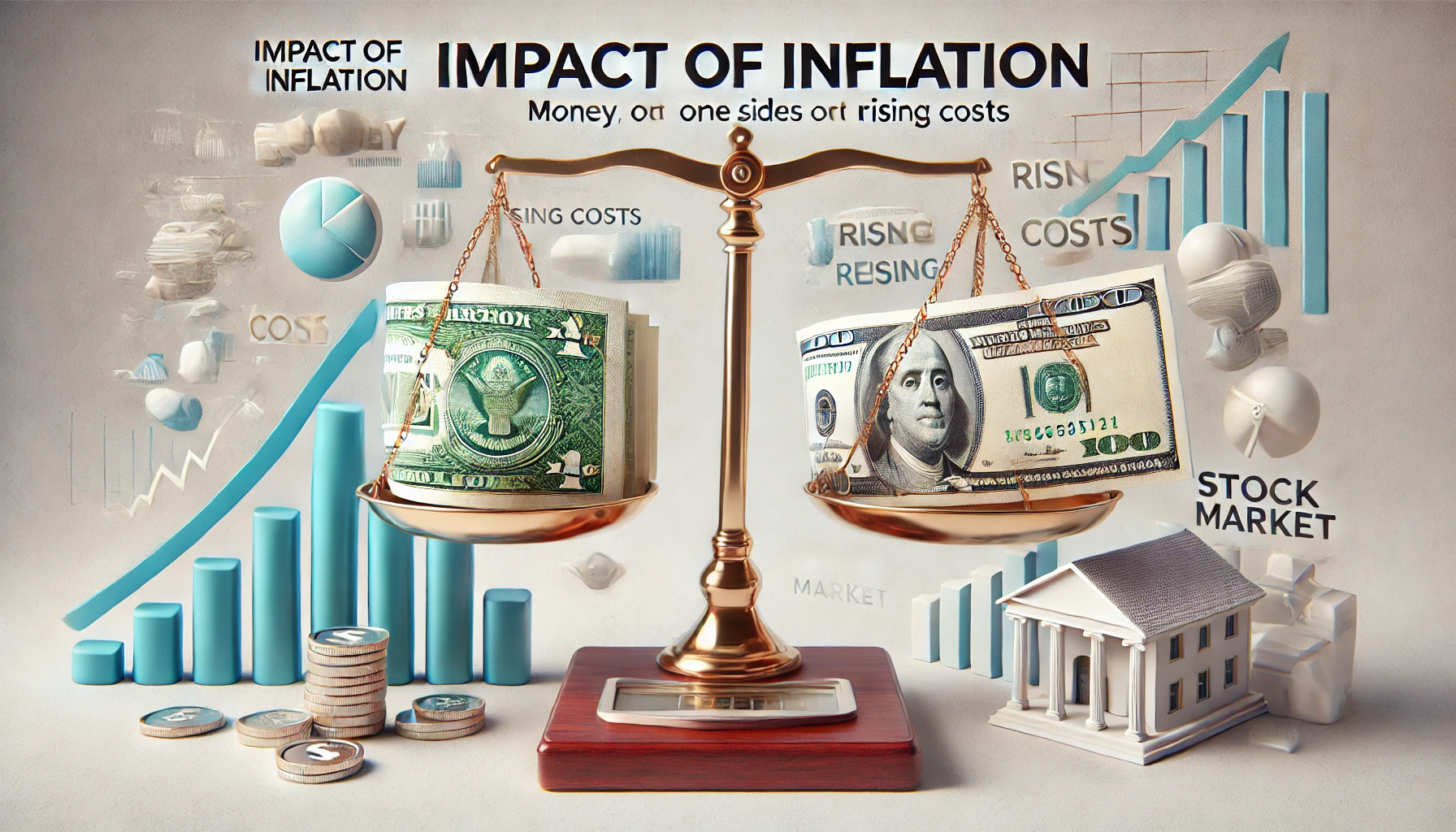All the same, the impact of inflation is an important line in economics. Almost everything in personal finance must be taken into account. However, it is no longer the situation that fixed costs can give these commodities cheaper lower prices. Hence your money buys fewer things as time goes along and this situation becomes apparent It is necessary to know how inflation affects your savings and investments. When the cost of goods or services rises, the value money has buys less each time, meaning your purchasing power decreases. With inflation on the increase here are some ideas for investment. The write-up will help you see in what ways inflation influences your savings and investments, as well as suggest ideas to find some relief from it.
In today’s rapidly changing economic environment, this from the Impact of Inflation is crucial reading. By understanding how inflation works and its potential effects on your finances, you will be able to make tough choices to safeguard both savings and investments. This article will take you through the basics of inflation, its Impact on various financial assets, and practical suggestions on how you can ward off the adverse effects of price increases caused by inflation.
What is Inflation when we talk about Inflation and Money?
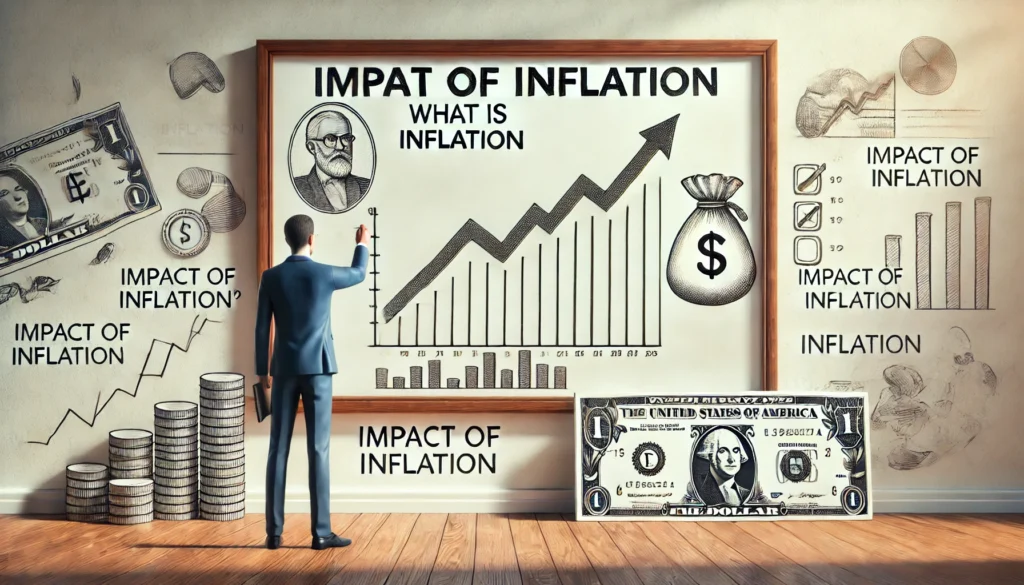
Inflation is the situation where the general rise in the level of prices of goods and services somewhere in an economy goes on over time. Inflation is measured by the rate of increase in these prices, which is expressed as a percentage change over some time interval, base year to present for example. As inflation is felt, the buying power of money drops off and so you need more money to buy the same quantity of goods or services.
There are two major causes of inflation: demand-pull inflation and cost-push inflation. Demand-pull inflation arises from an excess of demand for goods and services over their supply, forcing up prices. Cost-push inflation, however, is due to increased production costs–the price of other items will have gone up, so producers naturally want to sell some little things they now make themselves. By understanding these causes, you can better understand the larger Impact of Inflation on your life and personal finances.
How Inflation Affects Savings
The Impact of Inflation on your savings can be significant, as it will sap away at the purchasing power of your deposited cash. If for example, you placed a bank of $1,000 in a savings account yielding annual interest at 3% and with an inflation rate of 3% added from last year, then this cash would fall to about $970 after one year. Given time, accumulating small losses like these can make big waves in the real value of your savings (figuratively speaking), casting a shadow over your future financial objectives.
To combat the Impact of Inflation, it is important to defend your savings in every way you can. High-yield saving accounts, Treasury Inflation-Protected Securities (TIPS), and saving pies of different currencies are all options. These methods not only give the most effective protection for the value of your money but also help to make sure your savings grow in real terms despite (or perhaps because of) inflationary pressures.
The Impact of Inflation on Investments
Inflation and the Stock Market
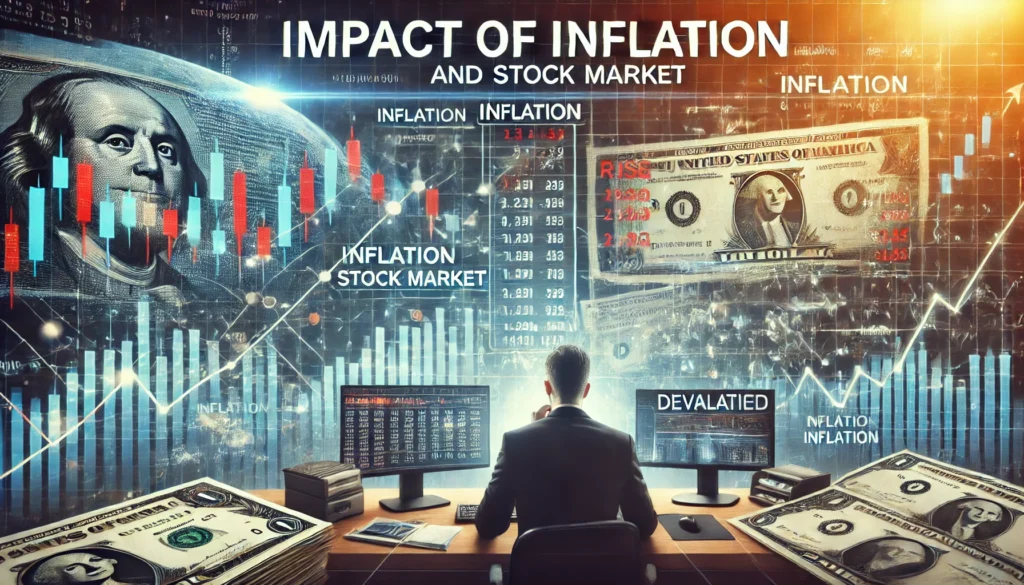
The Impact of Inflation on the stock market can be complicated. On the one hand, moderate inflation signals a growing economy — but high inflation hurts stock prices by increasing businesses’ costs and depressing demand from consumers. However, certain sectors-especially energy and consumer staples usually fare well in periods of higher-than-average prices as they contain necessities that people must have anyway.
Investors need to understand the Impact of Inflation on different sectors and adjust their portfolios accordingly. By concentrating on stocks in sectors that have traditionally done well during episodes of inflation, you might mitigate some of these adverse effects caused by ever-higher prices and hold onto value in your investments.
Inflation and Bonds
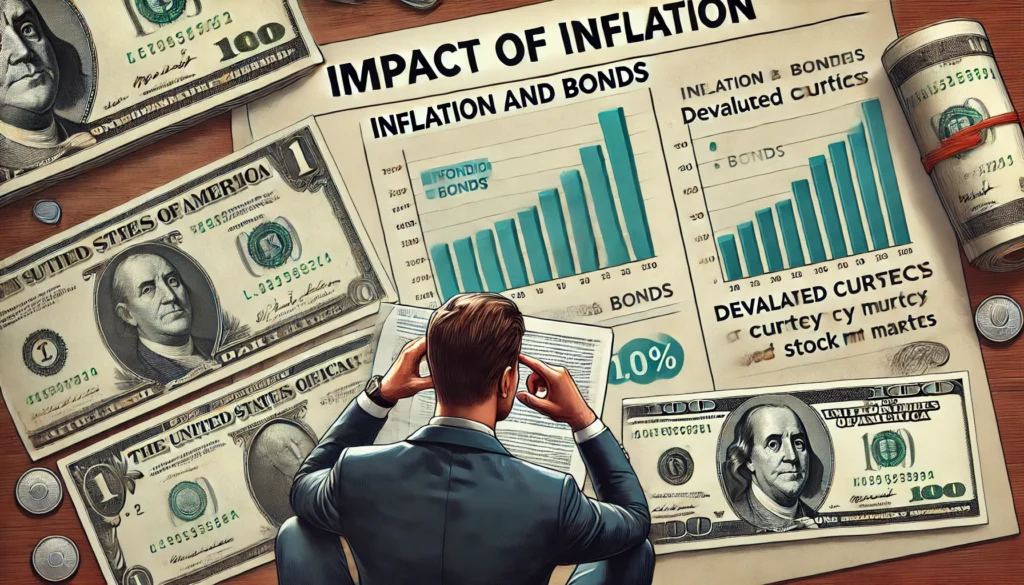
Bonds are particularly hard-hit by inflation because the Impact of Inflation erodes the fixed interest payments they yield. When inflation goes up, bonds’ real returns go down and this makes them less attractive to investors. A consequence of this inverse relationship is that bond prices typically fall during periods of high inflation.
To guard against the Impact of Inflation, consider investing in inflation-protected bonds such. Such as TIPS. These bonds are wired to change href=”index.html” target=”_blank” View the original at changes, using updated coed your principal and interest payments for example, according to what happens with inflation. Since inflation is effectively hedged off, you can preserve the real value of your investment.
Real Estate Investments
Real estate is often considered a good hedge against inflation. The Impact of Inflation on real estate investments can work in two tp5- ways. Property value and rental income generally rise along with inflation, so real estate should be a massive attraction for investors hoping to preserve their wealth in times of eroding prices.
But it depends on what the market does and whether the other assets will offset the World generally. Knowing the Impact of Inflation on real estate and picking suitable properties will help you obtain maximum benefit with minimal risk.
Investing in Precious Metals and Commodities
Gold and silver, for example, are traditional forms of investment. Inflation will not reduce their value as it might stock – and in fact, it tends on the whole to increase prices for such commodities.
Invest in precious metals as a hedge against inflation which will not go away. The value of the element remains constant and prices rise even during periods of high inflation, making them good investments.
Commodities like oil and agricultural products also offer protection against inflation. As inflation drives up prices for all products, so does this provide an opportunity for profit to the investor. Knowing The Impact of Inflation on these assets can help you diversify your portfolio and reduce the risk of inflation eroding your wealth.
Long-term Financial Planning Amidst Inflation
Adjusting Your Investment Strategy
To cope with the Impact of Inflation, it is important to adjust your investment strategy regularly. A diversified portfolio that includes a range of stocks, bonds, real estate, and commodities can help spread risk; maintenance is the key to success. Regularly reviewing and rebalancing your investments will mean that your portfolio remains in step with both your financial objectives for long-term growth as well as current economic conditions.
By adding inflation-protected assets to Your Investment Strategy, such as TIPS and real estate, you can further protect your wealth. Understanding The Impact of Inflation on different asset categories and making informed changes to your strategy can keep and grow your wealth over the long term.
Retirement Planning and Inflation
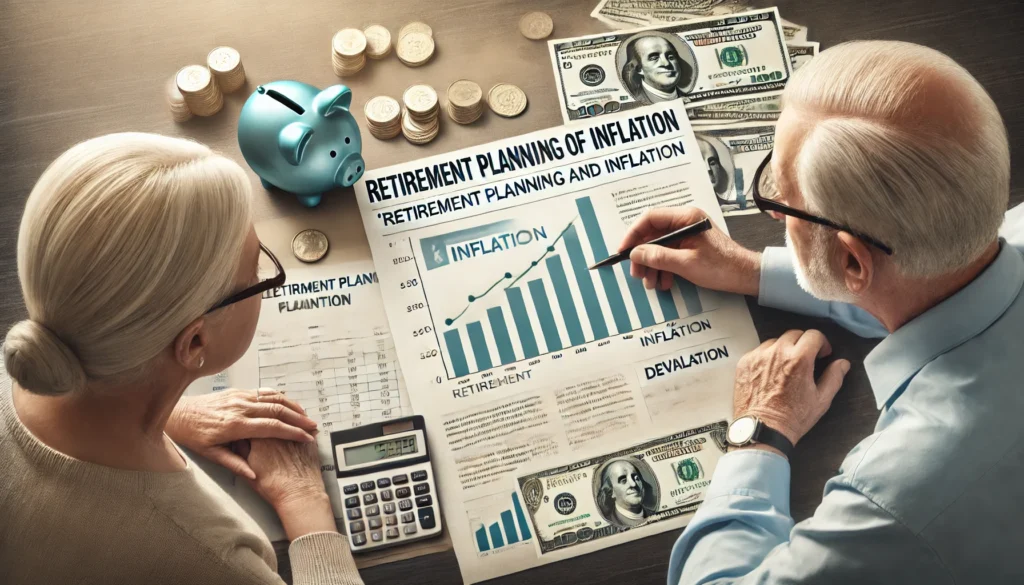
Inflation can have very serious consequences for retirement planning. The Impact of Inflation on your retirement savings means that you must allow for the higher cost of living as time goes by. Failing to recognize inflation can result in insufficient savings and financial hardship during retirement.
To guard against this risk, select retirement accounts and investments that are shielded from inflation. Regularly updating your retirement plan to account for The Impact of Inflation ensures that you have made preparations for future expenditures and can maintain your lifestyle once retire.
Practical Tips to Mitigate the Impact of Inflation
It is crucial to monitor the inflation rate since that will tell you how inflation is affecting your finances. Adding income sources can help you keep pace with inflation only because you’ll earn more money. This can help to preserve your buying power. Adjusting your budget to fit the higher prices too is one practical way of tiding things over for now.
Regularly reviewing your financial plan and taking the necessary actions required to mitigate The Impact of Inflation Inflation is an ongoing antidote to inflationary pressures, enabling you to effectively protect your wealth.
Conclusion
Understanding The Impact of Inflation on your savings and investments is at the heart of financial planning. By being informed and proactive, you can make strategic choices that will both protect your wealth and grow it further. Review and adjust your financial plan now in response to the challenges of inflation.

